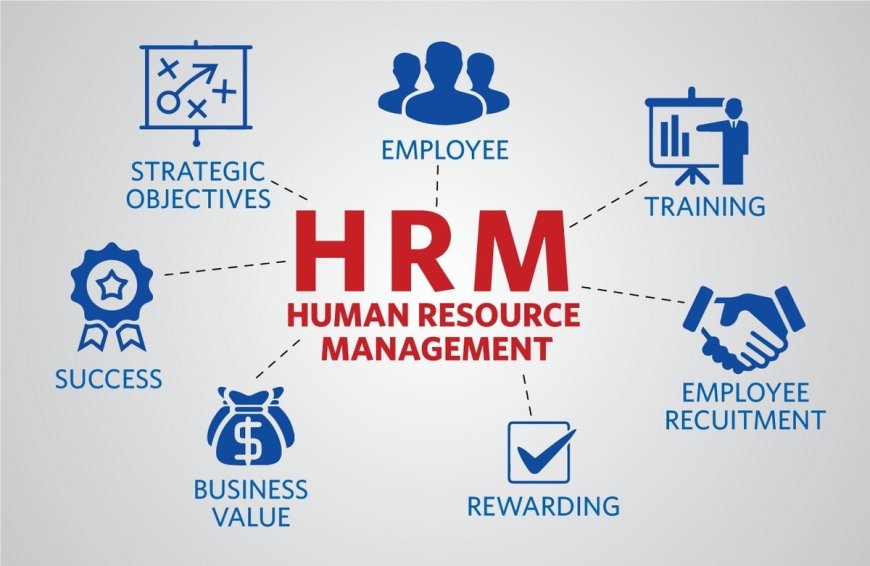Importance of HR in Banking

For any organization dealing with humans, a high-quality Human Resource (HR) department is crucial for its success. The effectiveness of the HR department directly impacts employee hiring, remuneration, legislative compliance, creating a good work environment, and more. Additionally, HR plays a vital role in customer and employee satisfaction, career management, data protection, and knowledge management. In all businesses, effective utilization of resources relies on the presence of a capable HR team.
The banking industry, as a highly regulated and influential sector, plays a significant role in stabilizing the economic environment of nations worldwide. Banks store sensitive client information, and commercial banks handle valuable assets like cash. Given that the banking industry primarily offers services, the importance of HR management has grown exponentially. Managing people within the organization and mitigating financial and economic risks present ongoing challenges for the banking industry. Only an efficient and skilled workforce can effectively manage the financial risks that banks face on a regular basis. The HR department is responsible for identifying and recruiting such talented individuals and placing them in suitable positions within the bank.
In addition to managing financial risks, employees in banking must prioritize customer satisfaction. Those working at the front office are the face of the bank, making it the responsibility of HR to place eligible individuals in customer-facing roles. HR must consider both the quality and quantity requirements of the banking sector. Bank employees, from executives to tellers, must exhibit a high level of integrity and trustworthiness, more so than employees in most other industries. This highlights the crucial role of HR in banking.
Now, let's discuss the importance of HR in banking in more detail:
Recruitment of the best talent: The banking industry, with its steady growth over the past decade, has resulted in an increased demand for educated and skilled professionals. The HR department is responsible for identifying future requirements and sourcing the best talent to fill positions at the right time. They are also responsible for applicant screening and conducting background checks to ensure client safety and prevent fraud.
Maintaining a balance of experience and youth in the workforce: Banking and technology are evolving rapidly, necessitating the incorporation of youthful energy and adaptability in the workforce. However, HR must ensure a balance between experienced and young professionals. This balance enables successful collaboration and promotes a positive working environment, which is crucial for the banking sector. HR may need to adapt its culture and management strategies to accommodate the needs of its diverse workforce.
Training and development: As technology and work methods continue to evolve, banks must provide training and development programs to ensure employees can adapt and embrace new technologies and procedures. The HR department is responsible for designing and implementing these programs to enhance employee skills and knowledge.
Performance management: Employees need recognition and rewards for their work to stay motivated and improve their productivity. HR departments conduct performance management to evaluate employees against predefined performance standards. They identify areas for improvement, provide training if needed, and reward employees based on their performance. HR also identifies talented individuals within the bank who can contribute to the organization's growth and success.
Addressing personal employee requirements: HR is responsible for creating and maintaining a positive work environment in banks. They strive to understand and fulfill individual employee requirements. When employees feel valued and supported, they tend to work harder and more efficiently.
Retention of clients and employees: To minimize employee turnover and build a loyal client base, banks must focus on employee retention and provide high-quality services. Retaining talented employees is crucial for banks, and building a loyal client base helps establish a positive market reputation.
Designing bank security measures: HR departments play a critical role in designing and monitoring work processes to reduce internal theft and collusion. HR policies separate cash handling, storage, processing, and disbursement activities, and employ video surveillance to monitor all related activities. If an employee attempts to steal from the bank, the HR department handles the necessary legal paperwork and administrative processes required for court proceedings.
Conflict resolution and budget control: Conflicts may arise within any organization, and banks are no exception. These conflicts can impact productivity and create an unfriendly working environment. HR is responsible for identifying and resolving conflicts to minimize their impact on banks. Additionally, HR plays a crucial role in budget control, ensuring expenses align with predefined budgets.
Planning, policy development, and decision-making: HR departments play a vital role in strategic planning, policy development, and decision-making. Their constant connection to the internal and external environment provides valuable insights and expertise for making informed decisions and implementing effective policies.
The banking sector encompasses a wide range of financial and commercial activities, all of which heavily rely on human resources. The specific practices and working styles may differ between different types of banks, such as rural or agricultural banks, each with its own policies and approaches. However, irrespective of the type of bank, a strong and capable HR department is essential for managing and maintaining the workforce and related functions. It is also crucial for HR to strike a balance between workforce demand and supply. Therefore, in the banking industry, having a high-quality HR department is imperative for sustainable success.
What's Your Reaction?

























































